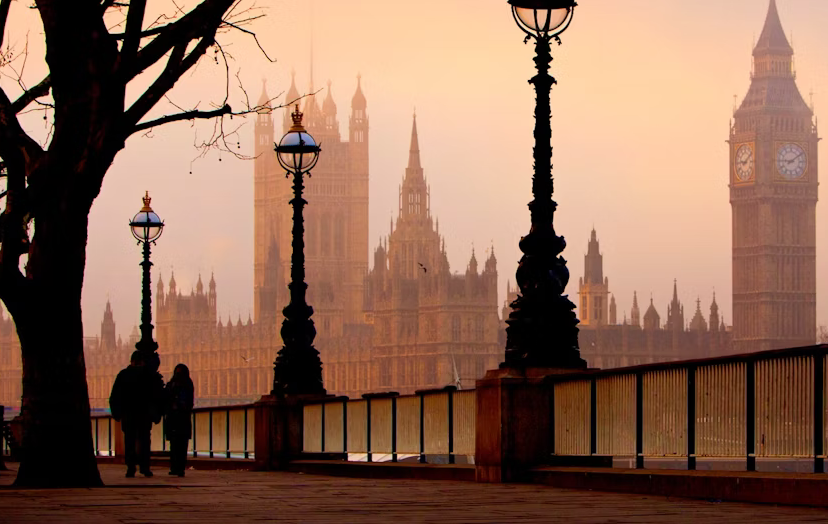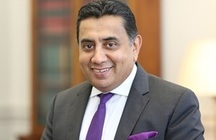Appointments to positions in Her Majesty’s United Kingdom Government typically, and perhaps not at all surprisingly, attract very little notice on this side of the Atlantic. More’s the pity given the very recent appointment this month of Lord Tariq Ahmad (The Baron Ahmad of Wimbledon) as the new U.K. Prime Minister’s Special Envoy on Freedom of Religion and Belief.
Lord Ahmad, United Kingdom Prime Minister’s Special Envoy on Freedom of Religion or Belief.
Photo: UK Foreign and Commonwealth Office
Lord Ahmad, a Conservative peer and a former Vice-Chairman of the Conservative Party, has served since 2014 in several junior ministerial positions including as Minister of State for the Commonwealth and the UN and Minister Responsible for Human Rights and Religious Freedom, both in the Foreign and Commonwealth Office. That Prime Minister Theresa May has seen fit to establish the special envoy role and to appoint Lord Ahmad to it demonstrates not only the importance that the British government gives to advancing international religious freedom within its foreign policy, but I would argue to the principle of freedom of religion generally as a fundamental freedom -a freedom with deep roots in the Anglo-American political tradition.
Lord Ahmad’s enhanced role through this appointment presents yet another opportunity to deepen cooperation between the United States, Canada, and the U.K., along with like-minded allies, to raise the profile of international religious freedom and to champion its cause.
I came to know Lord Ahmad through my work as Canada’s Ambassador for Religious Freedom from 2013-2016. During this time, I engaged on a regular basis with my British counterparts in the FCO and with a unique and highly effective group of UK parliamentarians committed to championing the cause of those around the world who face government-sponsored persecution and social hostilities because of their religious beliefs. Lord Ahmad has been affiliated with this group and has always impressed me as a strong voice for religious liberty. In this Lord Ahmad is not alone, as many in the international religious freedom community will be well aware of the fine work of the peers and members of parliament who comprise the U.K. All-Party Parliamentary Group on Freedom of Religion or Belief. What sets Lord Ahmad’s appointment apart is the enhanced profile it gives to him as a member of the Ahmadiyya Muslim community – a community that without doubt is one of most persecuted in the world today.
To be an Ahmadi in Pakistan, the country of the movement’s founding, is to live a public life as a non-citizen. It is to live your faith under not only the opprobrium of most of your neighbors but also to live your public life aware that your own country’s penal code establishes and targets you as an outcast. The vast majority of Muslims would see the Ahmadis’ beliefs and the claims of their 19th century founder Mirza Ghulam Ahmad of Qadian as decidedly heterodox, thus marking them out for state-sanctioned persecution. Born in Lambeth, Lord Ahmad’s family came to England from Pakistan and found an increasingly diverse and pluralist Britain in which there was growing respect for different beliefs. His family and his own story are not unlike the stories of so many who have fled religious persecution and have found in our own countries, the United States, Canada, and the United Kingdom, a civil society in which, despite some historical bumps in the road, freedom of religion and conscience has found deep roots.
As we seek to work together as Americans, Canadians, and Britons along with other allies to advance religious freedom globally in the face of ongoing persecution of people of faith, many of minority faiths, we must continue to champion religious freedom at home.
From my own north-of-the-border perspective, to promote robust international religious freedom while narrowing its scope in Canada to an increasingly constrained ability to live a fully public faith is to court hypocrisy on the global stage. Lord Ahmad is a strong advocate of religious freedom globally and in his position as special envoy he is emblematic of why it is so important to remember that foreign policy begins at home.
THE RFI BLOG

Religious Freedom Is Back on the UK’s Agenda

Be More Faithful, Become More Resilient: An Invitation to Religious Institutions

How Soccer Reveals Different Meanings Of ‘Secular’ In France And The US

RFI’s Ismail Royer Meets with Delegation from India

Protecting the Unborn, Mothers, and Medical Ethics: The Stakes of Arkansas’ Amendment
CORNERSTONE FORUM

Public Bioethics & the Failure of Expressive Individualism

Religious Liberty in American Higher Education

Scotland’s Kate Forbes and the March of Secularism

70 Years of Religious Freedom in Sweden: Prospects and Challenges


